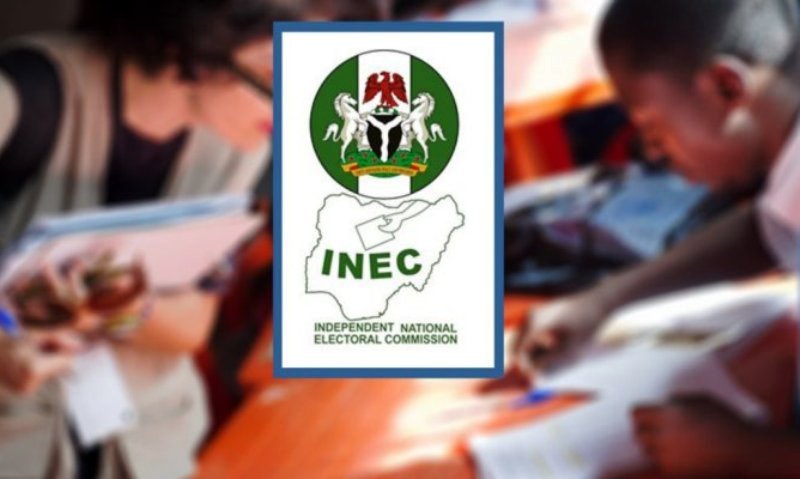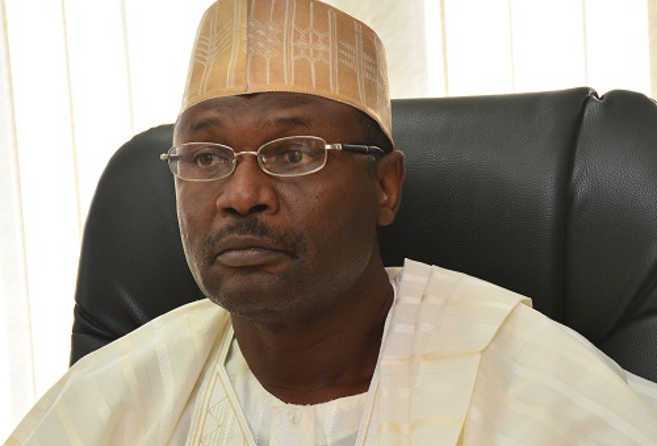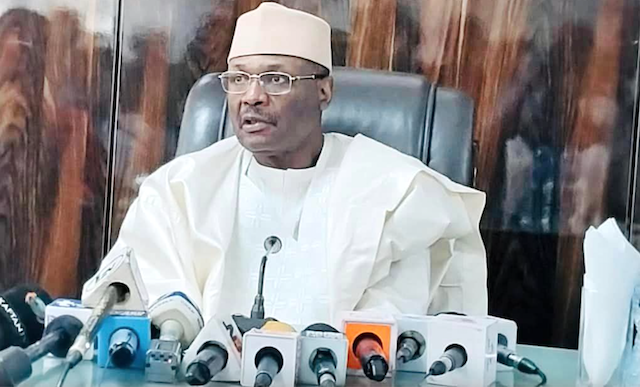Prof. Mahmood Yakubu, the Chairman, Independent National Electoral Commission (INEC) says the commission has come with 142 recommendations to improve future electoral process.
Yakubu said this at the opening of a two-day Induction Retreat for Resident Electoral Commissioners (RECs) on Monday in Lagos.
He said that the commission had published the report of the review of the 2023 elections ,adding it was already available on its website.
“But in addition, there is also the outcome of the retreats and engagements with stakeholders, which is right now being published.
“I can tell you that the commission has made 142 recommendations on the improvement of electoral process in Nigeria.
“As soon as the report is ready, we will go public and engage with Nigerians on this reforms.
“The reforms are categorised, the majority are for implementation by administrative action by INEC, but some are to be implemented by security agencies.
“We have those that require amendment to the electoral legal frameworks by the National Assembly. Some are to be implemented by political parties and other stakeholders.
“Nigerians should be patient, as soon as we conclude the process very soon, we will share this report with Nigerians,” Yakubu said.
According to him, in Nigeria, there is no election session any longer as the commission conduct elections round the round.
He said that since the inauguration of the National and State Assembly in 2023, INEC had conducted nine by-elections and still had to conduct five by-elections before the 2027 general elections.
Stating that the FCT Area council elections would also be due in 2026, Yakubu said that there was no respite for the commission again.
“As we innovate, we reflect, we review and we also implement,” he said.
On Edo, the chairman noted that the flood disaster that hit the the state recently affected over 4000 Bimodal Voters Accreditation System (BVAS) machines at the commission’s office.
He, however, said the commission had been able to recover no fewer than 3500 of the machines.
The INEC Chairman said the machines in the state would not be enough for the election and that the commission would call for additional support from neighbouring states.
On the retreat, the INEC Chairman said it was not just about induction of new appointees ,but an opportunity to review performance, reappraise process, discuss innovations and engage service providers.
He said that it was also an opportunity to interface with lawmakers on critical areas of reforms and explore new frontiers “in our continuous effort to improve organisational capacity for better service delivery.”
“In March 2022, we had an induction retreat for new National Commissioners, followed by another one on election logistics in October and then another retreat for new RECs in November.
“The most recent retreat was held in August last year for the review of the 2023 General Elections.
“Today, we are holding another retreat to induct 10 new RECs: nine of them were sworn-in on Dec. 12, 2023 and one of them on Jan.30 ,2024,” Yakubu said.
He said that in a matter of weeks after the swearing-in, many of the new RECs were saddled with the task of conducting re-run elections in a few locations in some constituencies or bye-elections in entire constituencies.
According to him, INEC will conduct four major elections before 2027 , listing them as Anambra, Ekiti and Osun governorship elections.
“Therefore, as we think, reflect and innovate for credible elections, we are also instantly implementing the reforms and innovations that we can introduce by administrative action.
“Since election is a process governed by law, we also plan to intensify our engagement with the National Assembly for activities that require legal reform,” he said.
The chairman charged the new RECs to be focused on how to acquaint themselves more with the processes and procedures of the commission.
He urged the existing RECs to leverage their privileged field experience to mitigate recurring challenges in the areas of pre-election and post-election litigations, operational issues.
He said that such experience should be applied in the area of logistics, improvements in voter education processes, issues of strategic communication and combating fake news, misinformation and disinformation as well as inclusivity in the electoral process.
Yakubu said that the experience should also cover voter registration, allotting voters to polling units, the role of technology from pre-election activities to election day processes.
He also urged RECs to help on political party issues mainly arising from leadership crisis and the management of party primaries, the recruitment and training of election duty officials, election security and our own code of conduct.
The INEC Chairman charged them to bear in mind that the cardinal objective of the retreat was for improved service delivery.
“I urge you to listen attentively to the presentations and, most importantly, contribute to discussions in a solution-oriented manner”.he said.
Yakubu expressed the commission’s appreciation to the Development Associates Inc. (DAI) and the International Foundation for Electoral Systems (IFES) for supporting the retreat and many other activities of the commission.
“The presence and goodwill messages of the DAI Team Leader, Mr. Rudolf Elbling and the IFES Country Director Seray Jay is a further affirmation of their commitment to transparent and inclusive electoral process in Nigeria.
“We wish to reassure you that INEC remains committed to these ideals just as we are determined to continue to push the boundaries of credible and inclusive elections in Nigeria,” he said.
Earlier in his welcome address, Prof. Ayobami Salami, the INEC REC, Lagos State, described the retreat as important and timely, saying that the platform would enhance electoral management in the country and inspire new ideas.
Salami said that electoral activities globally remained big tasks that required, uprightness, integrity and diligence.
Urging participants to take the retreat seriously, Salami said that at the end, RECs should be able to deliver a transparent, credible and acceptable electoral process,and one that is devoid of bias and partisanship.
In his remark, Mr Seray Jah, Country Director, IFES, applauded INEC for appointing experienced ex-staff as REC,saying the step would make election administration much easier.
Jah said that IFES had been partnering with INEC over the years by providing technical support in the area of capacity building, training and other areas.
According to him, elections all over the world are difficult tasks but there is no other country where elections are much more difficult to hold than Nigeria.
“We assert our continuous support in advancing the aspiration of this commission,” Jah said.
The retreat had in attendance RECs from the 36 states of the federation, directors and other management staff members of the commission.




